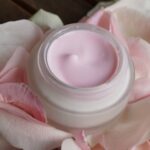 Duane Morris Takeaways: In Lopez, et al. v. L’Oréal USA Inc., Case No. No. 21 Civ. 7300 (S.D.N.Y. Sept. 27, 2022), Judge Andrew Carter of the U.S. District Court for the Southern District of New York denied L’Oréal’s motion to dismiss putative class claims that it misled consumers regarding nature of the collagen ingredients and their effects in its products. Companies should heed this ruling as a cautionary tale for the potential for liability when making anti-aging claims that can be misconstrued by consumers as overbroad.
Duane Morris Takeaways: In Lopez, et al. v. L’Oréal USA Inc., Case No. No. 21 Civ. 7300 (S.D.N.Y. Sept. 27, 2022), Judge Andrew Carter of the U.S. District Court for the Southern District of New York denied L’Oréal’s motion to dismiss putative class claims that it misled consumers regarding nature of the collagen ingredients and their effects in its products. Companies should heed this ruling as a cautionary tale for the potential for liability when making anti-aging claims that can be misconstrued by consumers as overbroad.
It is a truth universally acknowledged that a woman over 30 must be in want of an eye cream. Or a serum. Or anything, really, so long as it recreates the appearance of youth, vitality or an actual night’s sleep.
The global market for anti-aging cosmetics is expected to reach $93.1 billion by 2027. But as illustrated by a recent decision from the U.S. District Court for the Southern District of New York, Lopez v. L’Oréal USA Inc., promises that a product can turn back time by “restoring skin” or “promot[ing] cell regeneration” can prove costly for brands looking to capitalize on this growing market.
Brands should be mindful of litigation and regulatory risk when making certain anti-aging claims.
To read the full text of this article by Duane Morris associate Kelly Bonner, which was originally published in Law360, please visit the firm website.
